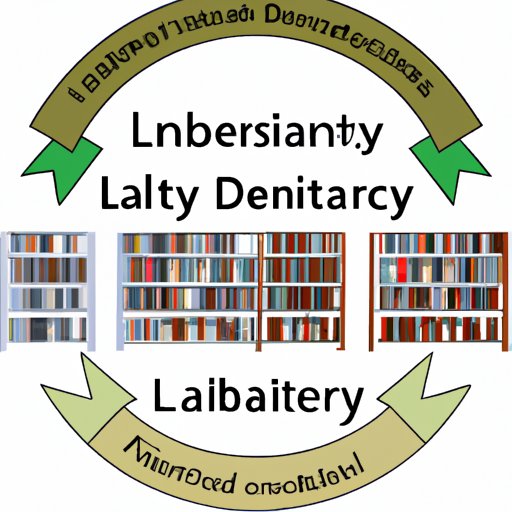Introduction
Library science is a field of study that focuses on how libraries are organized and managed. It involves not only the traditional activities of cataloging and organizing books, but also includes modern digital resources such as databases and online catalogs. Library science is a broad field that encompasses many aspects of library operations, from finance and personnel management to information technology and outreach services.
The benefits of library science are numerous. Libraries provide access to knowledge and resources for people of all ages, backgrounds, and abilities. They also play an important role in preserving and protecting cultural heritage. Additionally, libraries serve as community hubs, providing spaces for learning, collaboration, and socialization.

History and Development of Library Science
The earliest known libraries date back to ancient Mesopotamia, where clay tablets with written records were kept for thousands of years. In the Middle Ages, monasteries and universities began to establish dedicated libraries for research and teaching purposes. Over time, libraries evolved to include public and private collections, which eventually led to the development of library science as a formal discipline.
In the late 19th century, American librarian Melvil Dewey developed the Dewey Decimal System, a classification system used in libraries around the world. This system revolutionized library organization by allowing books to be arranged according to their subject matter. At the same time, libraries began to incorporate more modern technologies such as computers, scanners, and barcode readers.
In the 20th century, library science advanced further with the emergence of new technologies such as the internet and digital media. These advances allowed libraries to expand their collections and offer new services such as online databases and e-books. As a result, library science has become increasingly focused on technology and the integration of digital resources into traditional library activities.
Types of Careers in Library Science
There are a variety of career paths available in library science. The most common type of librarian is a public librarian, who works in public libraries and provides services such as reference assistance, book selection, and programming. Academic librarians work in college and university libraries, where they provide research assistance and oversee collection development.
Other positions in the field include school librarians, special librarians, and archivists. School librarians work in K-12 schools, helping students develop research skills and find appropriate materials. Special librarians work in corporate or government settings, while archivists are responsible for preserving and managing historical documents and artifacts.
Technology and Library Science
Technology has had a major impact on libraries and library science. Digital resources such as online databases and e-books have allowed libraries to expand their offerings and reach more people. Additionally, technology has enabled libraries to automate many processes, such as cataloging and circulation.
However, technology has also presented some challenges for libraries. Many libraries struggle to keep up with the rapidly changing technological landscape, and there is an ongoing need for training and professional development. Additionally, the increased use of digital resources has raised questions about copyright and intellectual property rights.

Information Literacy in Library Science
One of the most important aspects of library science is information literacy. Information literacy is the ability to find, evaluate, and use information effectively. It is an essential skill for anyone who uses libraries, as it enables them to navigate the vast array of information sources available.
Developing information literacy skills requires practice and education. Librarians play an important role in this process, as they can provide guidance and instruction on how to locate, evaluate, and use information. Additionally, libraries often offer classes and workshops on information literacy topics such as internet research and citation.

Challenges and Opportunities of Library Science
Library science faces a number of challenges in the 21st century. One of the biggest challenges is funding, as libraries often struggle to secure adequate resources to maintain and expand their services. Additionally, libraries must compete with other sources of information, such as the internet, which can make it difficult to attract patrons.
Despite these challenges, there are also many opportunities for libraries and library science. For example, libraries can use technology to reach more people and offer more services. Additionally, libraries can focus on developing programs and initiatives that promote information literacy, such as early literacy programs and digital literacy classes.
Conclusion
Library science is an important field with a long history. From its early roots in ancient Mesopotamia to its modern applications in digital media, library science has evolved to meet the changing needs of society. Today, library science encompasses a variety of disciplines, from librarianship and information technology to outreach and information literacy. Despite the challenges, library science continues to offer many opportunities for innovation and growth.
(Note: Is this article not meeting your expectations? Do you have knowledge or insights to share? Unlock new opportunities and expand your reach by joining our authors team. Click Registration to join us and share your expertise with our readers.)
